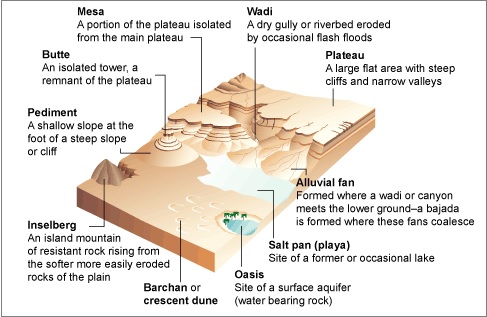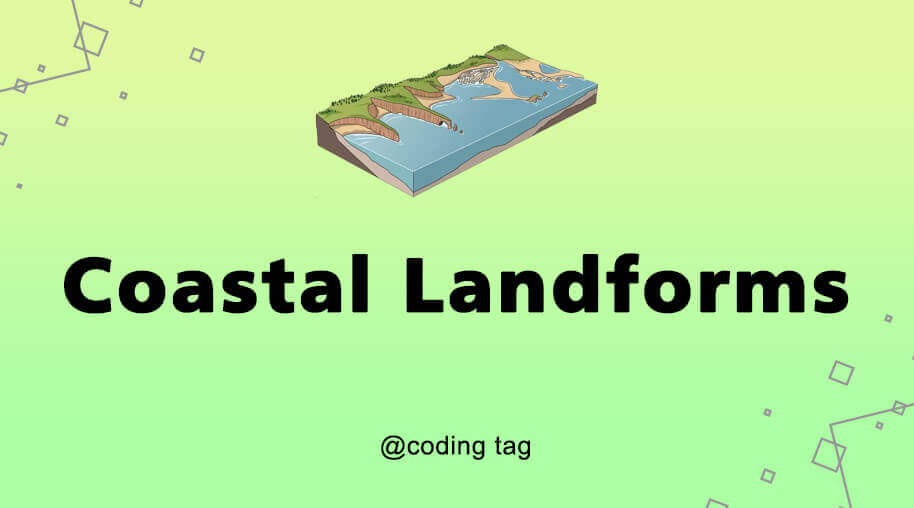Landform of Water actions in Desert
by Devender
0 2307
There is not much rainfall in the desert areas but thunderstorm and cloudburst do happen sometimes which leads to a torrential downpour of rain. It can lead to devastating effects.
Landform of water action in the desert
In deserts, a single rainfall has the capability to bring several inches of rain within a few hours which is enough to drown people who camp there & flooding mud-baked houses into an oasis.
- It can also lead to the formation of gullies & ravines (badland topography)
- Deserts have little vegetation to protect the surface soil
- So, a large quantity of rock waste is transported in sudden raging torrents known as flash floods
- The flash floods have so much material in them that the flow becomes liquid mud
- Temporary lakes
- These contain a high percentage of salts because of high evaporation & lower precipitation
- Bajada & Pediment
- The depositional feature made up of alluvial material lay down by intermittent streams is known as Bajda.
- An erosional plain formed at the base of the surrounding mountain scarps is called Pediment.
An alluvial cone or fan or dry delta is formed when the masses of debris are deposited at the foot of the hill or at the mouth of the valley. Over this cone, a temporary stream discharges through several channels, depositing more material.
These alluvial deposits are subjected to rapid evaporation by the hot sun & downward percolation of water into the porous ground, & soon dry up leaving mounds of debris.

These are also known as Playas, Salina, or Salars and are formed in arid or semi-arid areas by intermittent streams flowing into depressions.
The floor of desert depression is made up of two features which are - Bajada & Pediment.

Share:







Comments
Waiting for your comments